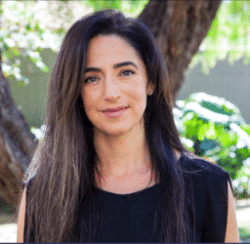Food is Medicine Too

Dr. Ricanati is a women’s health and wellness physician, writer and consultant.
Most of us know someone with breast cancer, or who had the disease, or maybe who even beat the disease. It’s relentless…and seemingly everywhere. With breast cancer rates at roughly 1 in 8 by the time we’re 80, that’s a lot of breast cancer.
And as overwhelming as that may seem, I am still encouraged. Yes, encouraged: after all, scientific research has demonstrated that about one-third of the expected cancer deaths this year will be lifestyle related, meaning that they are related to a lack of physical activity, obesity and poor nutrition.
Bingo. Sometimes it’s as simple as opting for a different choice and you can perhaps affect the outcome of this devastating diagnosis. I’m going to focus on food and breast cancer for our purposes.
What is it about food and breast cancer? Certain foods actually can turn on or off different genes in our body, genes that may either increase our cancer risk or genes that can fight cancer. This field of research is called epigenetics. Epigenetics is the study of changes in gene expression, caused by mechanisms other than changes in our underlying DNA sequences. In English that means that each of us has DNA in all of our genes that we inherit from our parents. We get what we get. But…and here’s the magic…we can change some of how these genes work by manipulating other outside factors – such as food! Seriously, what you eat can affect your genes. That’s epigenetics.
A 2014 review by Basse and Arock in the International Journal of Cancer, The increasing roles of epigenetics in breast cancer: Implications for pathogenicity, biomarkers, prevention and treatment, reports on recent dietary studies for both breast cancer treatment and prevention. For example, did you know that the types of vegetables that you eat matter? They do. Turns out not all greens may be created equal. Soy has also been studied, and various spices such as turmeric.
So whether you steam it (so easy, currently a favorite at our house) or roast it (especially good with a little olive oil and sea salt), or puree it for soup (use broth if you want a vegan option, or try with yogurt), try to add broccoli into your diet once a week…you might just be decreasing your risk of cancer while you eat something delicious! In addition, be sure to include a variety of foods that reduce inflammation to further reduce your risk. In addition to broccoli and other cruciferous vegetables (i.e. Brussels sprouts and cauliflower), include antioxidant, gene-changing and cancer-fighting foods such as oranges and other citrus fruits high in vitamin C, omega-rich foods such as salmon, antioxidant-rich berries and herbs & spices such as curry, ginger and garlic.
